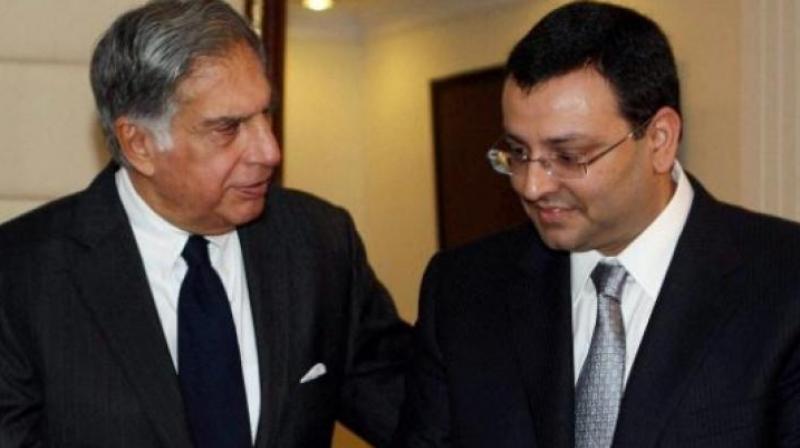Tata Sons' criticism of IND directors 'unfortunate': Mistry
Independent directors at Tata Chemicals have backed Mistry, which has led Tata Sons initiating action to expel Wadia from company boards.

Terming Tata Sons' contention that group companies were "drifting away" under him as "furthest from truth", ousted chairman Cyrus Mistry today hit back at Tata Sons calling its criticism of independent directors, revered names in India Inc, as "truly unfortunate".
"To suggest that 'ulterior objectives' and 'clever strategy' can sway these eminent names in undertaking their fiduciary duties and discharging the duties mandated by the statute as independent directors is absolutely astonishing and really speaks to how low Tata Sons has unfortunately stooped in their public statements," a statement from his office said, in a rebuttal to the recent actions of Tata Sons.
Stating that the independent directors whose conduct has been questioned include names like Deepak Parekh, Nusli Wadia and Nadir Godrej, among others, Mistry added that it is "truly unfortunate" that independence of "stalwarts of India Inc" is being questioned. The statement is a rebuttal to a 9-page open letter issued by Tata Sons in which it had accused Mistry of "trying to gain control of Indian Hotels Company, whose independent directors had sided with the former chairman of Tata Sons.
"He (Mistry) has cleverly ensured over these years that he would be the only Tata Sons representative on the board of IHCL in order to frustrate Tata Sons' ability to exercise influence and control on IHCL," the Tata Sons letter had said. Independent directors at Tata Chemicals have also backed Mistry, which has led Tata Sons initiating action to expel Wadia from its company boards. In its letter, Tata Sons had also alleged that Mistry was trying to gain control of the group's main companies and regretted its decision to appoint him as chairman four years ago.
It had said the structure of the group has been "consciously dismantled so that now the operating companies are drifting farther away from the promoter company and their
major shareholder". Mistry retorted back at this today, saying these suggestions are "furthest from the truth" and added that changing the board structure was part of a plan to alter the corporate governance practices with an aim to make the salt-to-software group's companies run independently.
"The corporate governance framework that was developed under Mistry's leadership attempted to ensure group companies would adhere to the group values, share best practices, enable movement of talent, exploit win-win synergies, and does all of this without impinging on the independence of the operating companies and the boards that they are ultimately responsible to," he said.
This was done to protect the interests of all stakeholders, employees, and minority shareholders, he said, adding that it was a case of placing responsibility "where it should lie". The Mistry statement also made a veiled but not fully elaborate reference to insider trading while explaining the need to have a new corporate governance framework.

